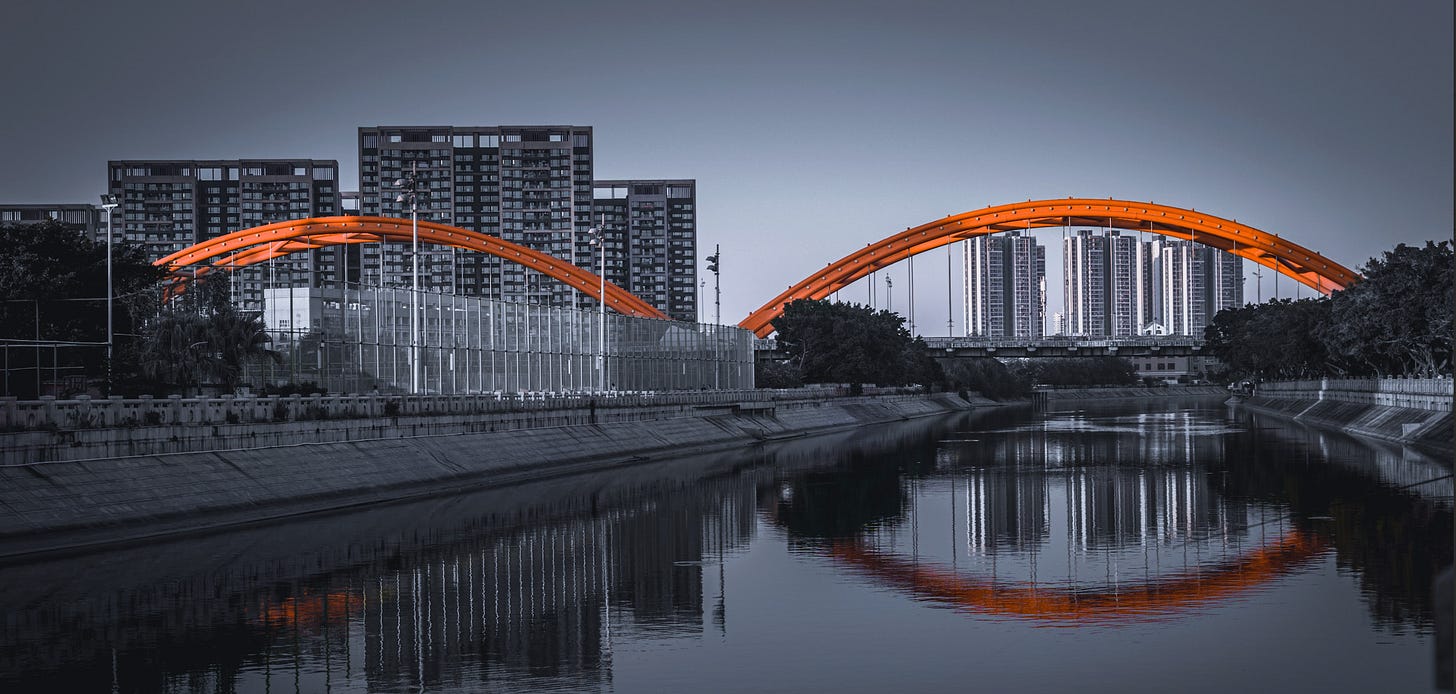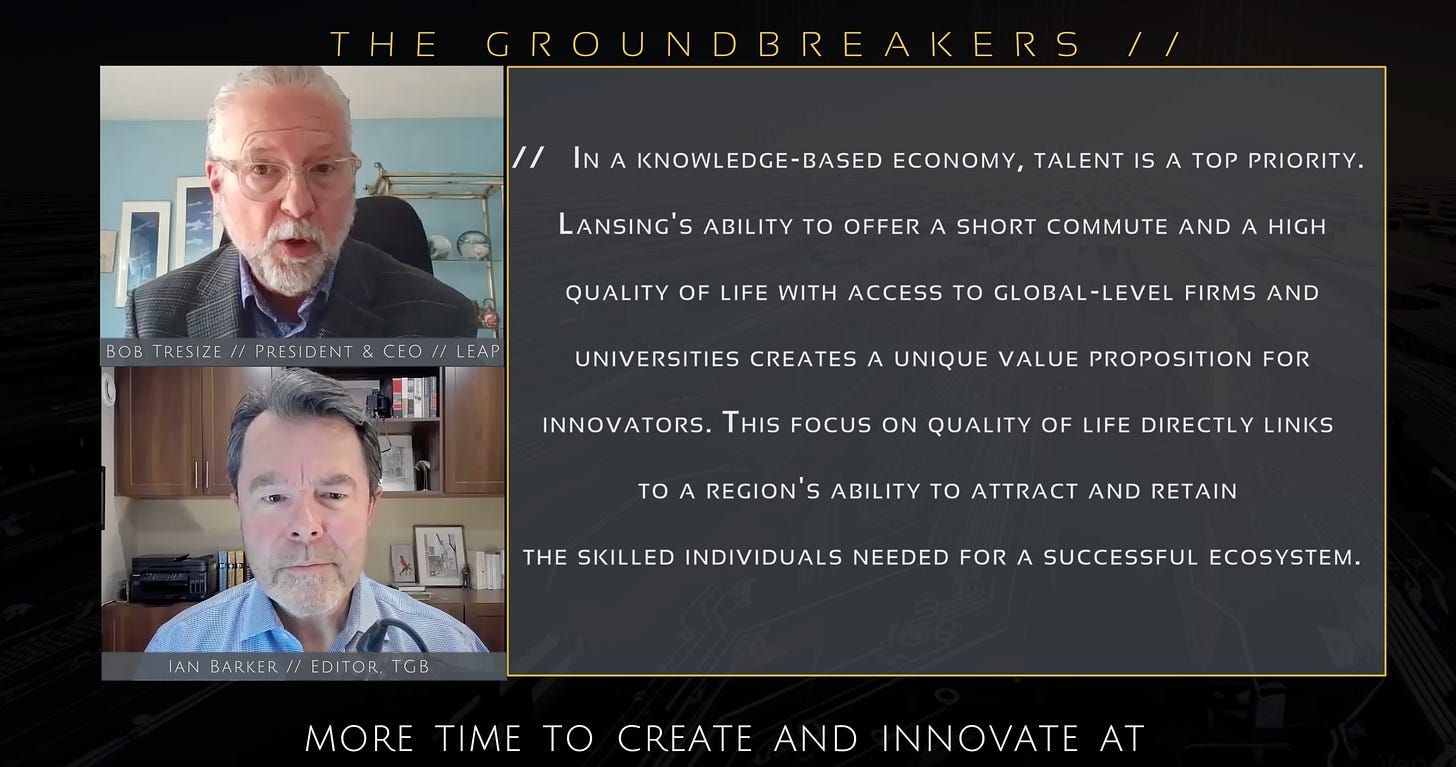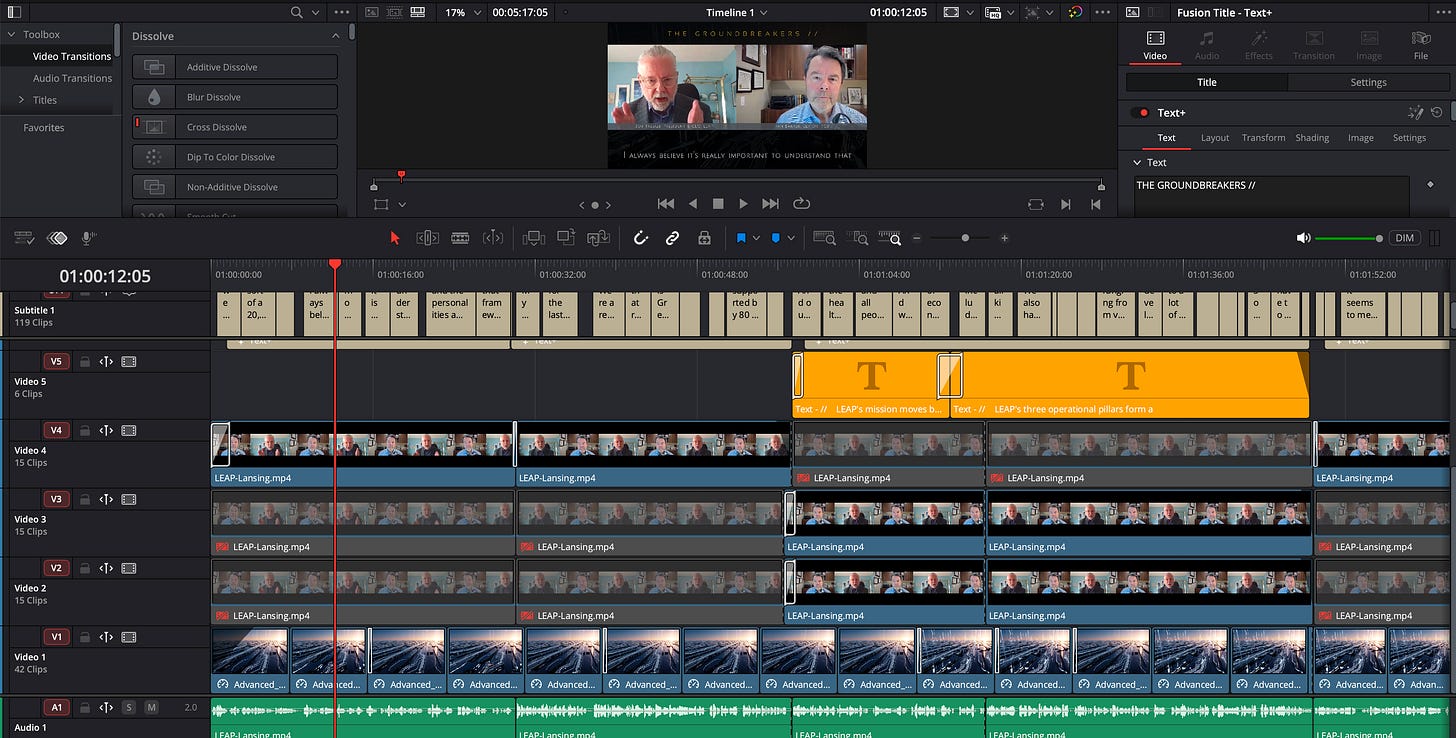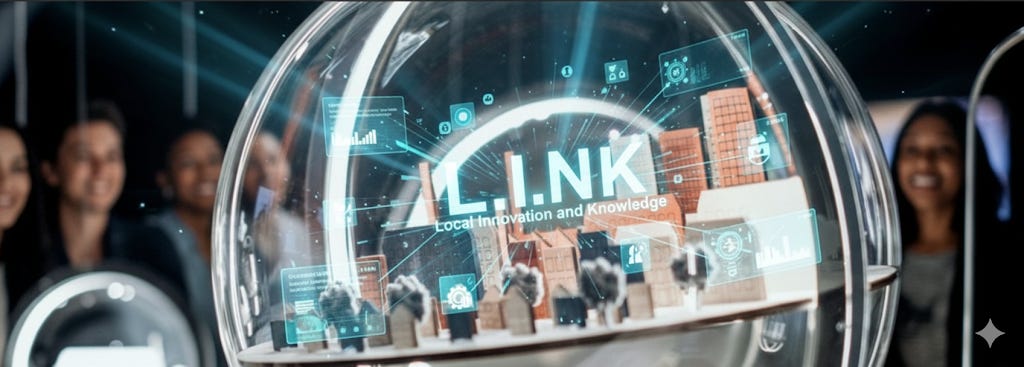We Don't Give Proto-Entrepreneurs Enough Credit.
Plus: 800 words on why I'm shifting The Groundbreakers to a video-first publication.

The Stuff of Leaders
I have undying respect for entrepreneurs. I don’t care if it’s a business serving millions or a hole-in-the-wall specialty shop, to be honest. The act of self-starting, making a buck on one’s own: this is the stuff of leaders. These are the driven people for whom the status quo won’t do, many of them pursuing breakthroughs which benefit us all.
Proto-entrepreneurs: We Don’t Credit Them Enough
What really strikes me these days, though, given the work I do, is that before the entrepreneur opens for business and powers up for the first time, others have already been there. Proto-entrepreneurs. The ones who created the playing field—the ecosystem—within which future startups evolve and emerge. Solutions aren’t found, jobs aren’t created, innovation remains imagination—all that potential remains untapped until the work of the proto-entrepreneur is done.
While I exaggerate to make the point—of course there are entrepreneurs who thrive despite the absence of structure and support, and of course ecosystems themselves are ever-evolving entities—the more complex and fast-moving life gets, the more today’s innovators and entrepreneurs need well-planned, strategic infrastructure to maximize their chances.
That is what I find so compelling about The Groundbreakers. It is endlessly fascinating to understand how places capitalize on their advantages while adapting and responding to change. Creating the playing field—fostering the ecosystems and communities where people want to work, where businesses want to locate, and where opportunity and progress produce hope and quality of life—is an entrepreneurial variant we can’t credit enough.

Communication Breakdown
Interviewing these proto-entrepreneurial leaders is a privilege, an educational front-row seat. And the results have been pretty special. But over the course of all of these interviews I kept coming back to some real problems. The first is that when people are so gracious with their time it is important to make the most of what they’ve said. Learning styles differ, but for me now—at my stage of life and the way I think—I’m preoccupied with not missing anything. Here I am sitting on all this stuff feeling like there’s a goldmine of material to learn from and share if only I could extract it properly. Problem!
That leads directly to a second problem. My original intention was to write long-form analytical pieces in which I drew readers’ attention to what makes each city unique and why, while outlining broader lessons from which we could all learn. The premise upon which this was based was pretty simple: the world is changing extremely rapidly with major economic and social consequences. With the world progressively more Apple-ized, Google-lified, and X-formed by the day, how do small and mid-sized cities and regions around the world compete? How do they retain their talent? Attract new people? In an era of front page, hundred-billion dollar AI infrastructure investments, what are the rest of us supposed to do? Big questions, important questions, yet ones that seemed at times to defy my capacity to properly represent. The result was articles I personally love and believe contain good content, but which I toiled over for too long while worrying I wasn't adequately representing the insights and enthusiasm of the interviewees.
Make Something Easy From Something Hard
The answer to these problems?
Mine the full innovation and economic development interview collection, structuring the information aided primarily by two sources of tertiary research. One is a repository of leading academic research papers examining regional economic development and innovation; the other is research based on economic complexity. The end result is an analytical framework I’ve termed “LINK.” The acronym is derived from Local Innovation and Knowledge, key elements of the virtuous innovation cycle available to any community in any place regardless of their size, scale, or stage of economic development. LINK is intended to put some structure and context around a place’s specific economic and innovation efforts so that we can see what works and what doesn’t, why, and what actions to take.
Video. Ignoring the obvious is a smart way to miss the moment, and I think it's impossible to ignore that video is the fastest, easiest way to reach people and an ideal way to impart short, useful information. To that end I’ve shifted the orientation of my work toward a video-first workflow. In the short term the shift stopped me completely. It meant learning the software (DaVinci Resolve for those interested), surrendering to the idea that I’m new to it and won’t be perfect, either on-screen (look at the camera! look at the camera!) or in editing and design.
No Time Like the Present
I put both video and structured data to work in the most recent set of interviews, which I’ll begin publishing this Monday. The initial plan for video is to keep it super simple: publish to Substack one or two 5-minute videos based upon 20-minute, one-on-one remote interviews. Promote them with 30-second shorts posted to X and LinkedIn.
Later, assuming all goes well, I’ll launch a YouTube channel so that there's an easy way to find collections of The Groundbreakers videos.

The first of the videos, in your inbox Monday, is an interview with Bob Tresize, President & CEO of Lansing Economic Area Partnership (LEAP). We covered important ground and I really enjoyed the direction of the conversation, including this:
“We each get a 20-to-25 year window to make a difference as individuals and as organizations. And I always believe it's really important to understand that moment in time that you are in. It is unique and you have to understand your place and space as a community and the personalities and people that are happening within that framework of you, of who you are.”
— Bob Tresize, President & CEO of Lansing Economic Area Partnership (LEAP)
See you all Monday.



Great quote from Bob Tresize at the end.